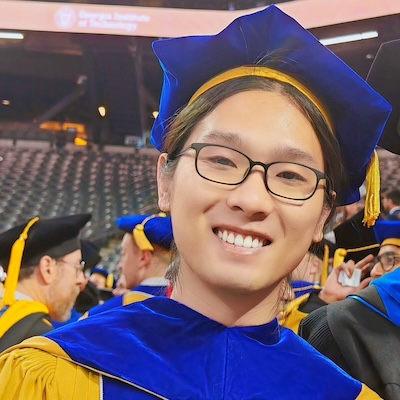
Mar 21, 2024 - Atlanta, GA
Kejun Yin, a recent Ph.D. graduate from the laboratory of Prof. Ronghu Wu in the School of Chemistry and Biochemistry, has been awarded the 2024 Sigma Xi prize for Best Ph.D. Thesis. Selected by a committee of faculty in the College of Engineering, the award consists of a certificate, a plaque, and a $1,000 monetary prize. Kejun's research concerned the use of proteomics to gain insight into the structure and function of proteins. He writes:
"Since the emergence of shotgun proteomics, the global-scale quantification of proteins and distinctive proteoforms has found wide applications. In recent years, increasing approaches have emerged to extract insights into protein structure, termed structural proteomics, and demonstrated their ability to systematically reveal protein conformation, folding state, protein-ligand interaction, and protein complex composition. Despite the aforementioned advances, the field of structural proteomics is still constrained by limited tools when confronting special modifications. Moreover, explaining observed structural alterations remains challenging because a wide range of factors can impact protein structure. Addressing these issues requires new strategies to be utilized in structural proteomics investigation. My thesis work included the utilization and refinement of existing structural proteomics strategies. I systematically quantified proteome structural changes induced by drugs and glycosylation, offering fresh insights into cellular responses. The methods developed in this thesis prove valuable for investigating system-wide protein structures. The insights gained, including drug modes of action, off-target effects, and the novel role of glycosylation in influencing cellular biological processes, contribute to an enhanced understanding of their functions, with potential implications for the fields of biology and biomedicine."
Yin is the third recent winner of this prize from the Wu laboratory, joining Haopeng Xiao (2019) and Suttipong Suttapitugsakul (2022).